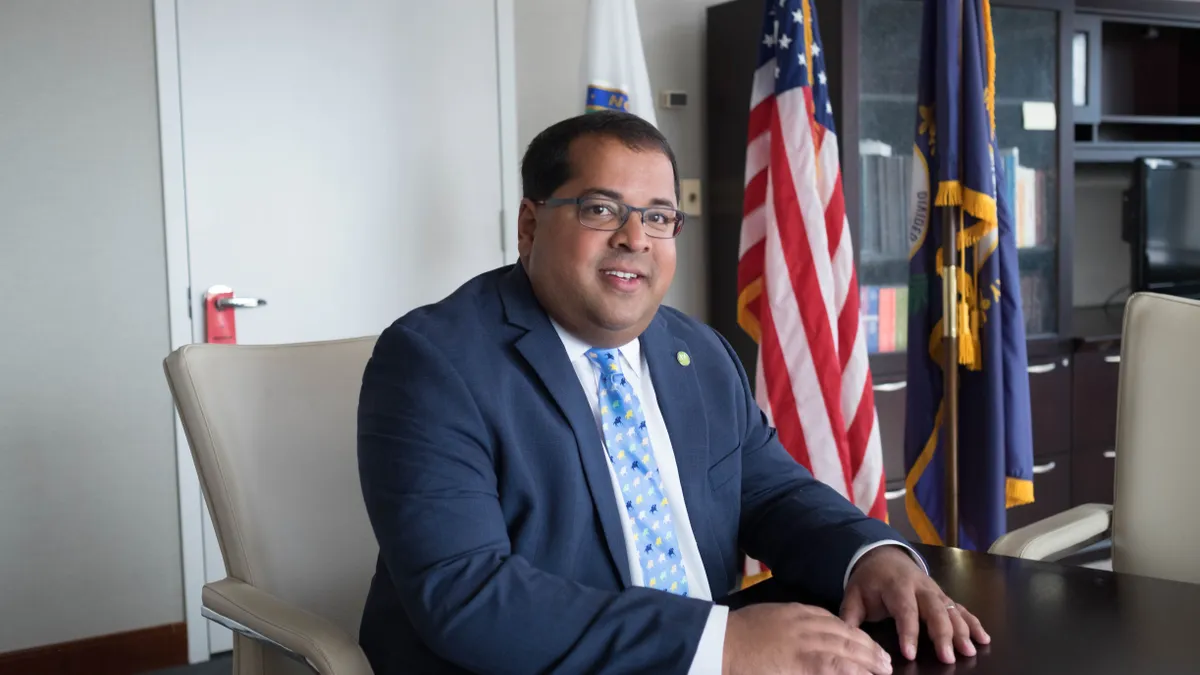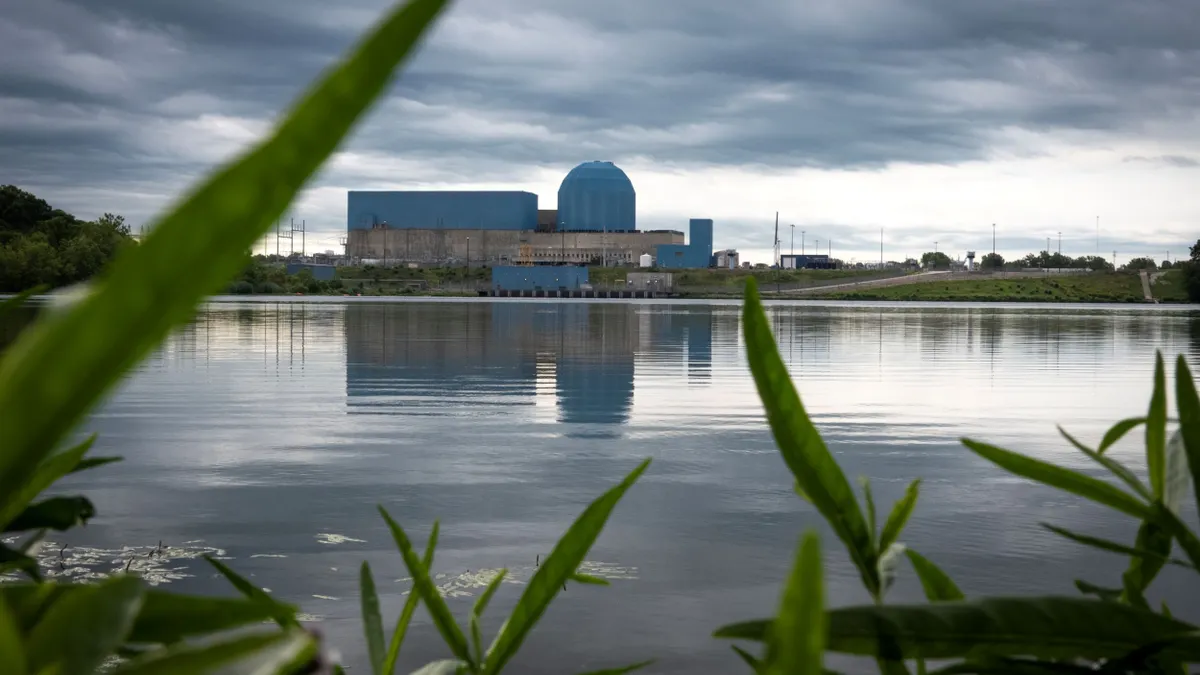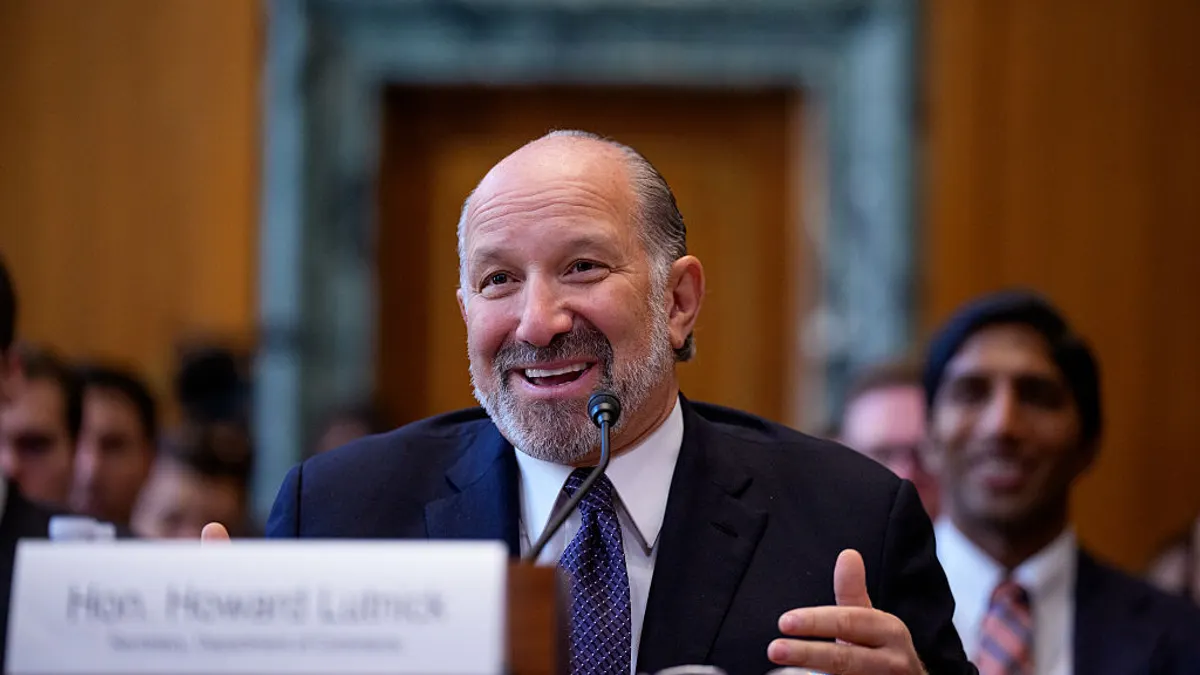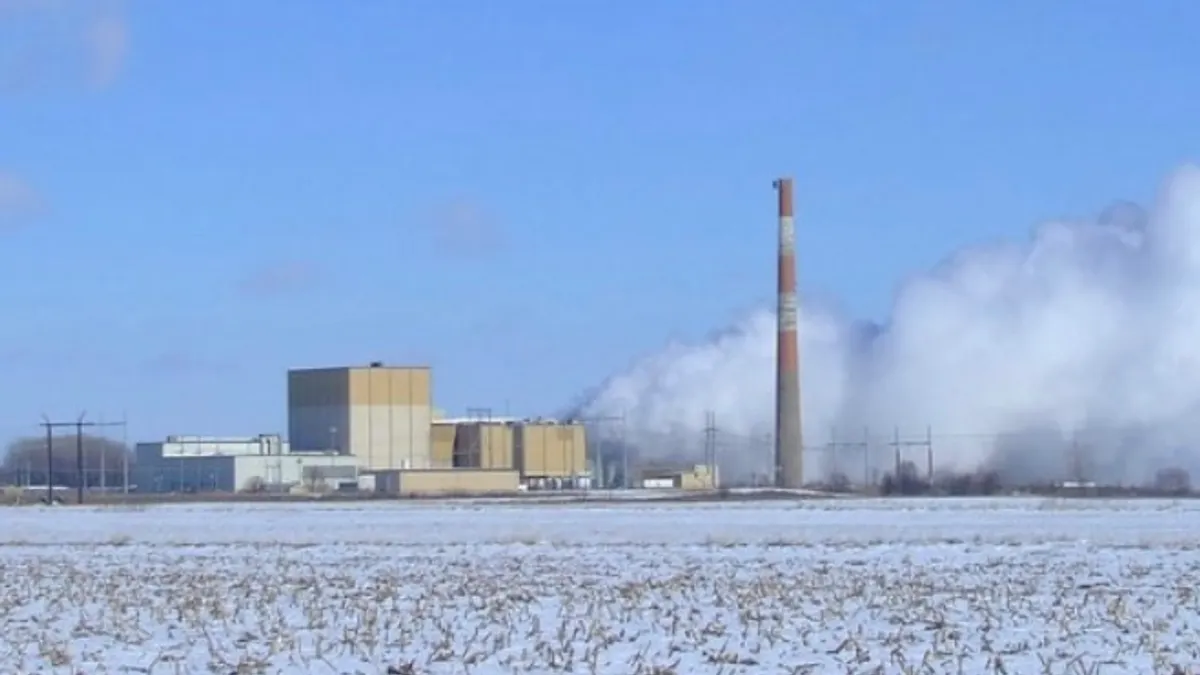Neil Chatterjee started his tenure with the Trump administration as a perceived ally of the coal industry. He ended it as a perceived martyr for climate policy. But he wouldn't describe his past three years as "an evolution."
The now-former chairman of the Federal Energy Regulatory Commission was unexpectedly demoted by the White House last week as President Donald Trump's path to a second term grew increasingly narrow. Chatterjee plans to stay on as commissioner for the remainder of his term, which ends in June.
Chatterjee acknowledged he had angered the political right in recent months with his push for the commission to examine carbon pricing and to lower barriers for distributed resources. But he insisted he was fronting a new age in conservatism — one that believes in climate change and wants common-sense, market-based solutions to decarbonization.
"I truly feel that there's a great opportunity for free market conservatives to embrace the clean energy business case."

Neil Chatterjee
FERC commissioner
"I don't like to use terms like pioneer," he said, adding that he may have been "one of the first" to promote and implement conservative policies on climate change. Other Republicans, including Sen. Lisa Murkowski, R-Alaska, have long supported a conservative approach to combatting climate change.
"Where appropriate, throughout my tenure, I wanted to do something about carbon mitigation," he said. "I truly feel that there's a great opportunity for free market conservatives to embrace the clean energy business case. … And I don't know if it was necessarily an evolution, because these have been my views all along."
The biggest regret of his tenure, though, that led people to label him as too political was his rhetoric surrounding the Department of Energy's controversial coal and nuclear bailout proposal during his time as acting FERC chair in 2017. Before joining the commission, he worked under Senate Majority Leader Mitch McConnell, R-Ky., and became known within his first few months at FERC as McConnell's "coal guy."
"Look, I was just not experienced or equipped enough to handle it," he said. "Where I erred was instead of viewing it from the perspective of a regulator who has to call balls and strikes based on the record before us, I was still sort of making that transition from partisan legislative aide to independent regulator."
In the years since, Chatterjee has angered industry advocates with his efforts to fight the "unacceptable market distorting effects" of state clean energy subsidies. But in his final months as chair, he began to move toward what he said was his goal all along — working on policies that would help the markets reduce carbon emissions. He suspects, and other observers agree, that those policies likely lost him his job.
In interviews with Utility Dive before and after his chairmanship was cut short, Chatterjee reflected on his time as chair — his proudest moments and regrets.
'Totally worth it'
Chatterjee knew when he began to address carbon pricing that not everyone would be on board.
Despite wide-ranging support from groups like the Natural Gas Supply Association, the Electric Power Supply Association and competitive power providers including Vistra and NRG Energy, his decision to host the commission's first-ever carbon pricing conference angered some on the political right.
Chatterjee speculates the conference and FERC's successive policy statement, along with Order 2222, an effort to lower barriers for distributed energy resources such as rooftop solar, were the reason for his sudden demotion. But the policy statement on carbon pricing was in reality more likely to have angered the White House than the distributed resources order, according to Travis Fisher, former advisor to Commissioner Bernard McNamee.
"Commissioner Chatterjee got in trouble with the White House because of the hasty policy statement on carbon pricing," he said in an email. "The carbon pricing policy statement was written quickly with little input from stakeholders and virtually no input from states or consumers. By contrast, the DER final rule was a natural extension of a large body of work by the Commission and its staff, and it [benefited] from input from a variety of stakeholders, including guidance from the court of appeals on important jurisdictional questions."
If the DER rule did play a role in Chatterjee's demotion, that would be surprising, according to Jeff Dennis, who spent over a decade at FERC and is now managing director and general counsel at Advanced Energy Economy.
"I'm ... very surprised, in some ways that the DER action would lead to this kind of reaction from the White House," he said. "It's about competition, and things that have always kind of been in the conservative Republican mantra."
If carbon pricing was the sole reason — "I'm not shocked, because I think there was obviously a risk there," Dennis said. And "this administration's been a little erratic."
In general though, industry and the political right have been moving more toward supporting policies that advance a markets-based solution to climate change, Chatterjee said. And he believes more may be willing to come to the table.
"I firmly believe that there are other Republican senators, Republican House members, Republican governors, who are interested in being a part of this policy conversation," he said.
If either the DER order or the carbon pricing policy statement were the reason for his early exit, Chatterjee said "it would have been totally worth it."
But reflecting on his three years as chairman, Chatterjee said there were definitely some things he wishes he could go back and change about his tenure.
'Thrown in the deep end of the ocean'
Just a few months into Chatterjee's stint as acting chair of FERC, the Department of Energy filed a notice of proposed rulemaking (NOPR) with the commission, urging FERC to create a tariff that would compensate coal and nuclear plants for their resilience attributes. Chatterjee was brand new to FERC and said his inexperience combined with the high-profile NOPR and the pressure it came with from DOE "were not ideal."
"Forget the deep end of the pool, I got thrown in the deep end of the ocean right off the get go," he said.
Though the commission ultimately rejected the proposal unanimously, many were critical of Chatterjee's atypical handling of the issue — he detailed an interim plan to save coal and nuclear to the press before bringing it to commissioners, criticized previous Obama-era policies he'd been opposed to while working for McConnell, made controversial posts on Facebook, and has floated running for office someday on several occasions.
"He definitely has been a different kind of chairman," said Dennis. "And I think some of it has probably been more political than previous chairmen, or certainly at least a little more outwardly political."
His background as an energy advisor to McConnell did not help that image, and he blames in part his transition from a partisan legislative aide to an independent regulator for some of his early blunders, particularly when it came to the NOPR.
"It wasn't so much in my actions but in my rhetoric that I really alarmed people that [there] might be this significant change in the market," he said. "I didn't really fully grasp or appreciate how closely people followed my words and the uncertainty that I was causing."
After he detailed his interim plan to save coal and nuclear plants to the press, blowback was swift. Former regulators blasted the chairman's tactics and rhetoric, as well as the interim plan itself.
But ultimately, it took guidance from other commissioners to convince him it was not the right legal or economic move, Chatterjee admitted.
"It really took Chairman [Kevin] McIntyre and Commissioner [Robert] Powelson and Commissioner [Cheryl] LaFleur, and later Commissioner [Richard] Glick, to steer me and explain to me how what was being proposed was not legally viable, and was actually contrary to the market driven approach that we would ultimately pursue," he said. The plan was rejected under McIntyre's watch in January 2018.
But despite a rocky beginning, Chatterjee insists that his strategy of being front-facing has ultimately been a good thing for the commission, and will become even more essential as the energy transition hastens and FERC becomes more and more relevant. He continues to defend some of his most controversial policies.
'The days of FERC being referred to as an obscure agency are over'
One of the most controversial policies the commission approved under his chairmanship was expanding the Minimum Offer Price Rule (MOPR) within the PJM Interconnection, something market proponents, clean energy interests and the grid operator itself have all since criticized. Even competitive generators, who first came to the commission asking for such a policy, have indicated they may be willing to come to the table to negotiate a long-term solution to the MOPR, following state threats to exit the capacity market altogether, a high cost potential consequence of the order.
Chatterjee said the MOPR was a "tough decision."
"Just to put the shoe on the other foot, if we hadn't taken the actions that we took, then I'd [have] been roundly criticized by other parties for saying that I was neglectful in my duties to ensure just and reasonable rates and the effective and efficient functioning of markets," he said. "That's just the nature of tough decisions. We made a tough decision."
But combined with potential future actions on carbon pricing, he hopes the overall sum of FERC's actions will decarbonize wholesale markets without subsidies, something he was trying to pursue through all the policies he oversaw — overhauling implementation of the Public Utility Regulatory Policies Act, attempting to eliminate "the distortive effect" of state subsidies, and lowering barriers to storage and DERs.
"These things all dovetail and ... the common throughput through all of them [is] the markets," he said.
"Ultimately, if states taking action on carbon pricing can be accommodated in our markets, then I think we will have done our jobs and done our jobs well. And I think some of the people who have expressed concerns about some of the actions that we've taken, hopefully, with the benefit of time and reflection, will see that it all worked."
And as the markets and power grid continue to evolve rapidly, FERC will continue to become more relevant than it ever has been, he said, which will necessitate it to be more front-facing and less obscure than it previously had been. Though stakeholders have at time been critical of his approach, accusing him of using his position for future political ambitions, he insists that, too, was necessary.
"By having that ... public facing presence I've made FERC more understandable and relatable to people that perhaps don't always play in the FERC space, he said.
"Things have changed. The days of FERC being referred to as an obscure agency are over. The commission has always been relevant, but I think its significance is now being more broadly recognized."
Correction: Former Chair Jon Wellinghoff said the DOE NOPR plan would "blow the market up." A previous version of this story mistakenly attributed that to Chatterjee's interim NOPR plan.























